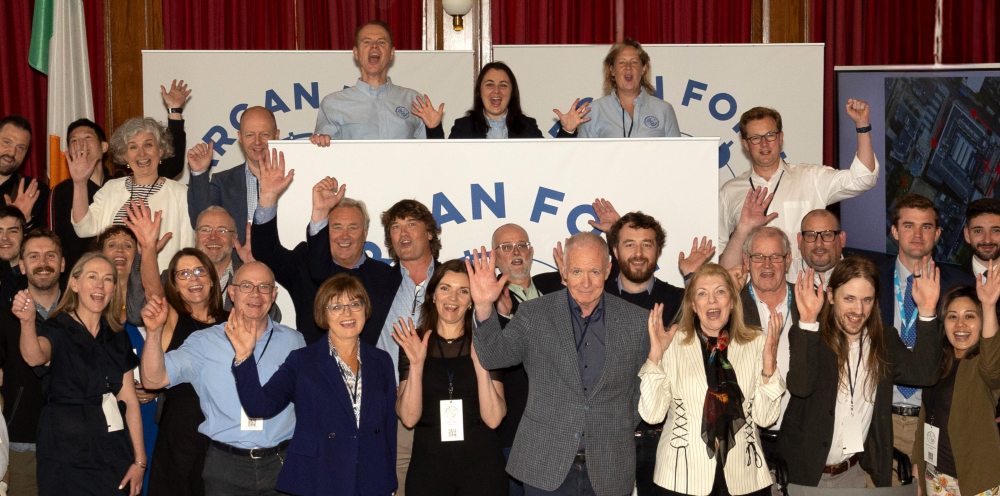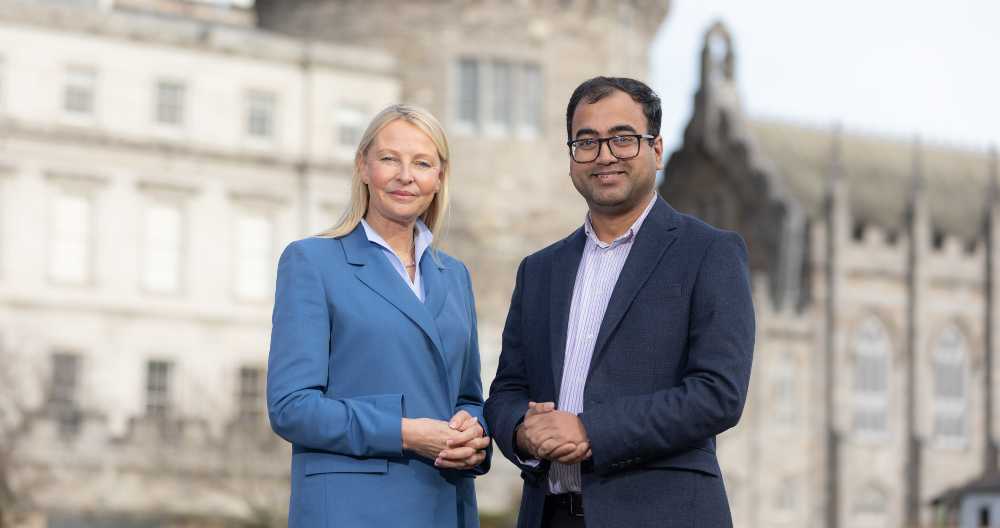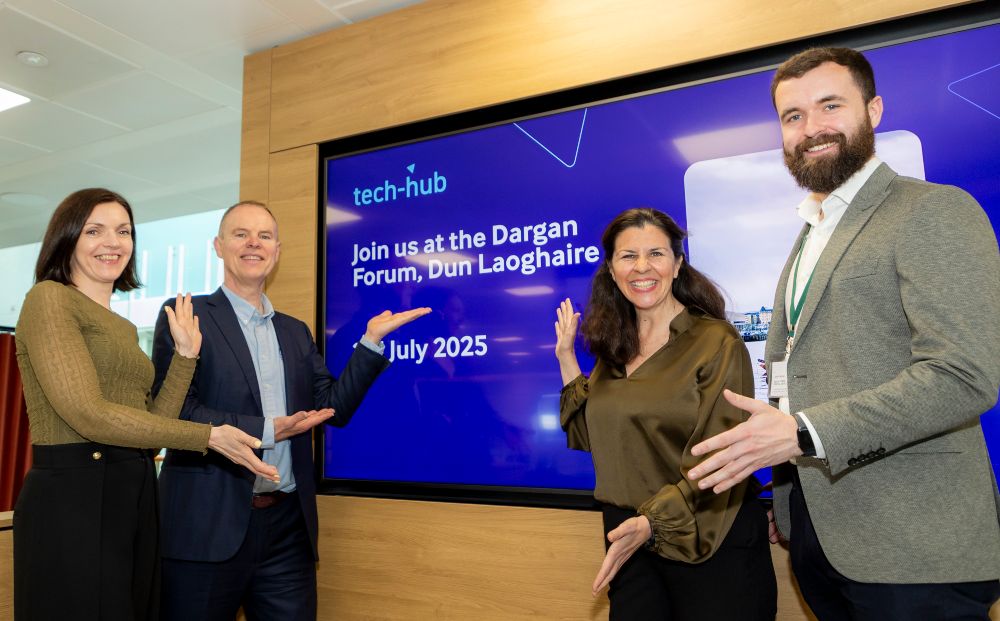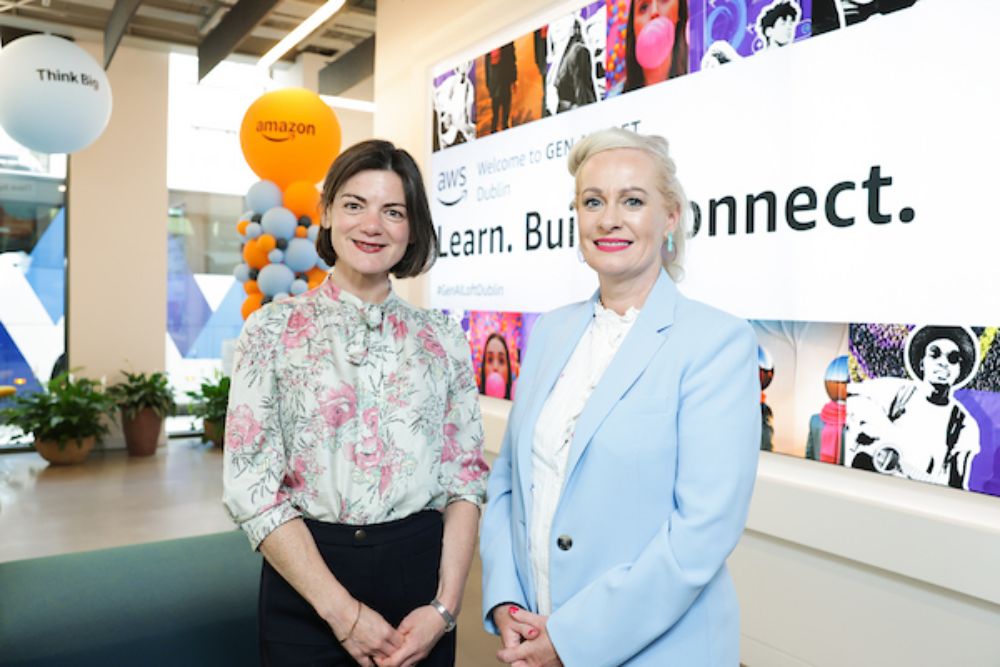Podcast Ep 259: Dargan Forum keynote speaker Adam Dorr from RethinkX on how innovation will reshape economies and societies.
While most of the prevailing sentiment around new technologies like AI tends to be negative – “AI will steal our jobs”, for example – Adam Dorr believes it might not be so bad and in fact could be a force for good eventually.
Dorr is director of research at US thinktank RethinkX. He has gained global recognition for his ground-breaking work exploring how innovations in energy, transport, food, and AI are rapidly reshaping economies and societies.
“We’re going to see goods and services plummeting in cost, creating an opportunity for us to enjoy a level of prosperity that in all prior epochs has been unimaginable. The challenge is figuring out where people will get their income – their claim to a slice of that prosperity”
Speaking at the upcoming Dargan Forum in Dun Laoghaire on 2 and 3 July, Dorr’s keynote address will challenge Irish audiences to reimagine the pace and direction of change across business, infrastructure, and the future of work.
The Dargan Forum 2025 will bring together national and international experts to tackle Ireland’s most pressing challenges related to climate action, technological change, and economic uncertainty.
Featuring 55 expert speakers across 11 events, the Forum will address themes ranging from digital skills and artificial intelligence to retrofitting, sustainable transport, entrepreneurship, and the future of civic spaces.
Supporters of the Forum include Enterprise Nation, .ie, DLR County Council, Bank of Ireland, Connected Hubs, and RWE.
Navigating technological transformation
Dorr is an environmental scientist by training and directs the research team at RethinkX, a non-profit, independent research organisation. “We’re philanthropically funded, and our mission is to understand technology and disruption as well as possible, and then to communicate that understanding and any findings we have to policymakers, investors, and, of course, the global public at large.
“This is a particularly pressing challenge right now because we’re facing a number of profound technology transformations simultaneously. We’ve got technologies that are transforming energy and transportation and food and labour. You can’t look at the news without seeing something about AI every day. So we’re in the thick of it now, and I get to have fun as a scientist trying to understand all of that stuff.”
A lot of the negative press around AI signals an impending “white collar blood bath.” Does Dorr agree with such gloomy predictions?
“Anybody who feels that way is not alone. That is a perfectly healthy response to the changes that are barrelling towards us like a tidal wave. I think you make a great point that there’s a lot to learn from the enormous transformation of information and communications sectors over the last 30 years. The world is totally different now than it was in 1995. We’re in a situation where we face a similar degree of transformation again, but this time, it’s not just one aspect of our lives, it’s multiples. We’ve got energy, transport, food, and then the big one – labour. How are AI and embodied artificial intelligence and robotics coming at us fast and furious?
“The truth is, nobody knows the answer to how we adapt. Anybody who loudly proclaims that they’ve got it all figured out is someone to be very sceptical of. My posture and RethinkX’s posture is that anytime we face a disruption like this, the most important thing is not to have all the answers, but to be asking the right questions, and then have a strategy based on principles like flexibility, adaptiveness, and agility.
“A good metaphor we like to use is sailing. You can know where you’re generally headed, and you can know you’ve got a storm between here and your destination, but that doesn’t mean you know every single step of the way. You’ve got to tack, making your way towards your goal but ready to adjust course at a moment’s notice. Problems are also opportunities – this is about as big as problems and challenges get, but that also means this is about as big as opportunities get as well.”
The sailing metaphor fits neatly with Dorr’s upcoming presence in Dun Laoghaire, which boasts one of Europe’s largest manmade harbours and which was once a bustling trade port. The business community and town benefit from being close to everything economically but also struggle by being in the shadow of Ireland’s capital city.
I ask Dorr if AI does actually steal jobs and people aren’t working or paying taxes, how do we maintain our economic system?
“We live in a world that for literally thousands of years has been governed by the iron law of scarcity – there just isn’t enough to go around for every single person to have everything they would ideally like to have. That gives us a distributional challenge of how to allocate scarce resources.
“What’s extraordinary about this moment is that we have technologies poised to upend that fundamental bedrock. We are in a moment where we could flip very quickly from a world where most things are scarce to a world where most things are abundant.
“Economically, if something is scarce, there’s high enough demand and small enough supply that it’s worth having a market and putting price tags on things. But there are things in our lives that are not scarce – we’ve made a few things abundant.
“I like to use two examples: paper napkins at a restaurant and drinking water from a drinking fountain. In both cases, you don’t have infinite demand, but the demand that exists is easy enough to supply that you don’t bother putting a price tag on each unit. That’s abundance.
“These new technologies are going to make more and more things in our lives like paper napkins – transforming them from being scarce to being abundant over perhaps 20 years. This will happen through two key technological changes: clean, super abundant electricity/energy and super abundant labour from machines, not human beings.
“We’re going to see goods and services plummeting in cost, creating an opportunity for us to enjoy a level of prosperity that in all prior epochs has been unimaginable. The challenge is figuring out where people will get their income – their claim to a slice of that prosperity. We need to figure out a fundamentally new social contract that gives people a claim to some share of their society’s prosperity.”
Dorr says that local economies actually hold cards in this haggling match between scarcity and abundance. “One of the key guiding principles that will enable humanity to seize the opportunities here, as opposed to just getting clobbered by the tidal wave, is to start experimenting at local scales. Solutions are unlikely to emerge from national governments or the largest tech companies because those are the holders of power within the existing status quo.
“What the history of technological transformation tells us is that when radical changes come along, it isn’t the folks at the centre of power who have all the answers – it’s innovators out on the edge. We’re going to figure this out in our communities, in our cities, towns, neighborhoods, even in our own families. We’re going to figure this out at a local level.
“This is important for two reasons: First, it’s pragmatic – it gives us a way to take action that doesn’t require massive barriers to entry. We can begin this now at the community level. Second, this is the kind of solution we want to have. We want a world where the social connections around us are what really matter. When we’re talking about that innate drive to express, create, and collaborate, one of the best ways to do that is with your community.
“We need to think about concrete details – when is the right time for your community to start thinking about having its own energy system, stepping away from reliance on the centralized energy grid? When is it time to start thinking about adopting new food technologies that make you more self-sufficient? Those are the kinds of questions we should be asking and looking for answers right here in our own homes and communities.”
Adam Dorr will be a keynote speaker at the upcoming Dargan Forum in Dun Laoghaire on 2 and 3 July. Learn more here
-
Bank of Ireland is welcoming new customers every day – funding investments, working capital and expansions across multiple sectors. To learn more, click here
-
For support in challenging times, click here
-
Listen to the ThinkBusiness Podcast for business insights and inspiration. All episodes are here. You can also listen to the Podcast on:
-
Spotify
-
SoundCloud
-
Apple






